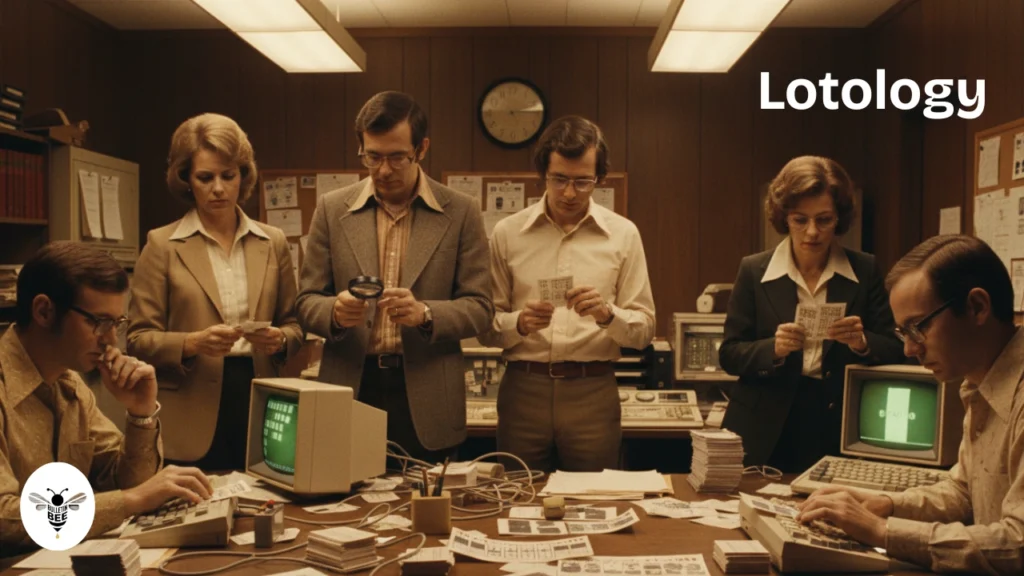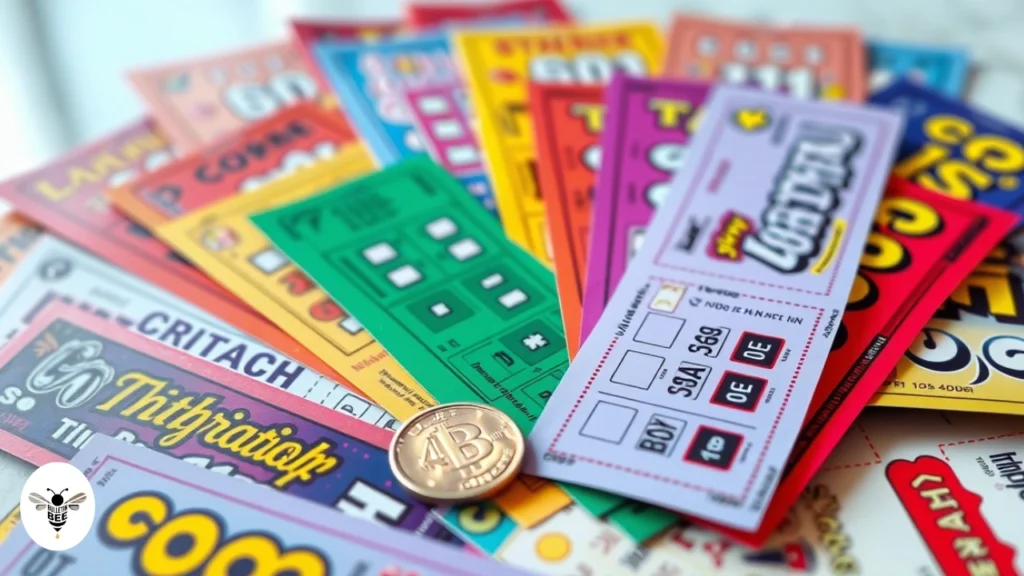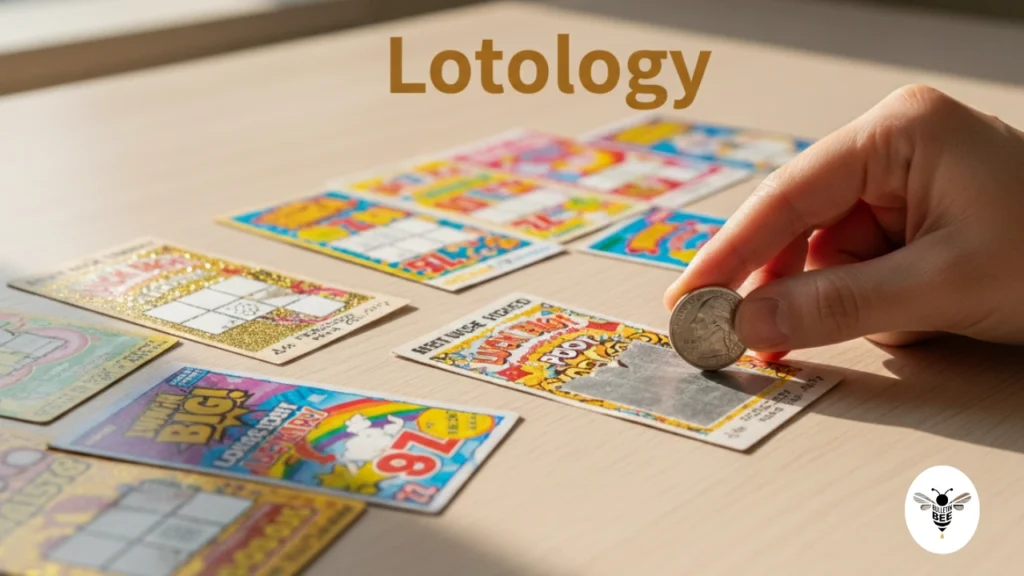When you walk into a supermarket, gas station, or local lottery booth, chances are you will spot a colorful display of scratch-off tickets. Those little cards hold a small moment of excitement — the possibility of winning big with just a coin swipe. While most people simply call them scratch cards, there is actually a formal name for the study and collection of these items: Lotology.
Lotology isn’t just about playing the lottery; it’s about exploring the stories, history, artwork, collector’s value, and cultural influence behind scratch-off games. Many enthusiasts treat these tickets the same way others collect stamps, sports cards, or coins. They don’t always scratch them — instead, they preserve them as pieces of history and pop culture.
What is Lotology?
Lotology refers to the hobby, study, and collection of scratch-off lottery tickets.
A person who participates in this hobby is known as a Lotologist.
Unlike regular lottery players who are interested only in prizes or winnings, Lotologists are fascinated with:
Also Read
- The design and artwork of the tickets
- The history and evolution of lottery games
- Rare or limited-edition scratch cards
- Collecting tickets from different states or countries
- Preserving unused or unsolved tickets as collectibles
For Lotologists, scratch-offs are more than just gambling tools — they are miniature snapshots of cultural trends, printing technologies, and marketing strategies over time.
The Origins of Scratch-Off Tickets

Scratch-off tickets were invented in the 1970s as a way to make lotteries faster and more exciting. Before this, lotteries involved filling out numbered slips and waiting for official draws — a slow and sometimes boring process.
The first scratch-off ticket was developed by John Koza, a computer scientist, and Daniel Bower, a marketing expert. Their company, Scientific Games, introduced scratch-offs to the public in 1974.
They used computer algorithms to generate instant-win outcomes, making it possible to find out immediately whether a ticket was a winner.
This simple innovation changed the lottery industry forever.
How Lotology Developed as a Hobby
At first, scratch-offs were played and thrown away — like receipts or candy wrappers. But as the designs became more creative and appealing, some people noticed how interesting and artistic they were.
Key factors that helped Lotology become a hobby:
| Factor | Impact |
|---|---|
| Bright, attractive artwork | Encouraged collecting instead of discarding |
| Limited-edition tickets | Created rarity and demand among collectors |
| Different games and themes | Encouraged themed collections (e.g., holidays, sports) |
| Internet & communities | Helped collectors connect globally |
By the 1990s, Lotology communities began forming online, especially in collector forums. Today, social media groups and digital marketplaces offer spaces where Lotologists share, trade, and showcase their collections.
Why People Collect Scratch-Off Tickets

People collect scratch-off tickets for various reasons, and not all of them involve gambling. Here are the most common motivations:
1. Appreciation of Art and Design
Scratch tickets often feature creative themes, vibrant colors, holographic foils, and interesting typography. Some are seasonal or feature licensed characters like superheroes or cartoons.
2. Historical and Cultural Interest
Scratch-offs reflect pop culture, national events, holidays, and public campaigns. For example, tickets released during major sports tournaments or festivals become collector favorites.
3. Rarity and Uniqueness
Some tickets are produced in very limited numbers, especially promotional or regional editions. These can gain value in collector markets.
4. Nostalgia
Many collectors keep tickets from their first win or childhood memories.
5. Community and Shared Hobby
Trading and discussing tickets can be a social hobby like stamp collecting.
Types of Scratch-Off Tickets in Lotology
Lotologists categorize scratch-off tickets in multiple ways. Here are some common types:
| Type | Description |
|---|---|
| Standard Tickets | Regular low-cost scratch-offs |
| Themed Tickets | Based on holidays, movies, sports, etc. |
| Limited Edition Tickets | Released for short periods |
| High-Stake Tickets | Higher price, larger prize amounts |
| Unclaimed/Unscratched Tickets | Collectors keep these untouched |
| Error Tickets | Misprints that can become rare collector items |
Among these, unscratched limited-edition themed tickets are often the most valuable for collectors.
How Lotologists Build and Preserve Collections
A serious Lotologist treats their tickets like museum artifacts. Preserving the artwork and condition is extremely important.
Storage Tips for Collectors
- Keep tickets flat to prevent bending.
- Store in plastic sleeves (like trading card holders).
- Avoid exposing tickets to sunlight (to prevent fading).
- Keep in cool and dry conditions to prevent paper deterioration.
Organizing Methods
Collectors may organize by:
- Country
- State or Region
- Theme (e.g., Christmas, Wildlife, Sports)
- Release Year
- Scratch Material Type (foil, latex, holographic, etc.)
Communities and Marketplace
Lotology has grown thanks to online spaces where collectors connect:
- Facebook Groups
- Reddit /r/lotology
- eBay & Collector Marketplaces
- Online cataloging tools and personal websites
Collectors can trade, sell, or show their finds. Some extremely rare tickets have sold for surprisingly high prices — especially those from early decades or discontinued lottery programs.
Is Lotology About Gambling?
Not necessarily.
While scratch-off tickets are originally gambling products, Lotology focuses more on collecting and preserving, not playing. Many Lotologists never scratch the tickets they collect — their interest is in the ticket itself, not the prize.
This distinction makes Lotology closer to:
- Numismatics (coin collecting)
- Philately (stamp collecting)
- Card collecting
It is a safe hobby when approached as collecting rather than constant lottery playing.
The Investment and Value Side of Lotology
A common question is:
Can scratch-off tickets increase in value over time?
Yes — some can.
Value depends on:
- Rarity
- Age
- Condition (unscratched = most valuable)
- Theme or cultural popularity
- Demand in collector circles
However, Lotology should be enjoyed as a hobby first, not purely as investment.
How to Start Lotology as a Beginner
- Begin by Saving Scratch Tickets You Already Buy
Keep the interesting ones — don’t throw them away. - Explore Local Stores
Different locations sometimes sell different ticket designs. - Research and Join Online Communities
Get advice from experienced lotologists. - Focus on Themes You Enjoy
Sports-themed? Holiday-themed? Pick what feels meaningful. - Store and Protect Tickets Properly
Condition matters.
The Joy and Meaning Behind Lotology
The real beauty of Lotology lies in the small stories each ticket carries.
A ticket can remind someone of a special day, a road trip stop, a holiday celebration, or even a small lucky win.
They are tiny artworks, pieces of time preserved in paper.
This hobby encourages curiosity, creativity, memory, and appreciation for everyday design — turning something ordinary into something collectible.
Final Thoughts
Lotology is more than collecting scratch-off tickets — it’s an exploration of culture, art, chance, and history wrapped in a small card. What began as a quick gambling product has become a passionate hobby for people around the world. Lotologists preserve not just tickets, but moments, designs, and shared curiosity.
If you’re someone who enjoys collecting unique things or has an eye for detail and design, Lotology might just be the perfect hobby for you. Each ticket has a story — you simply need to look a little closer to find it.





